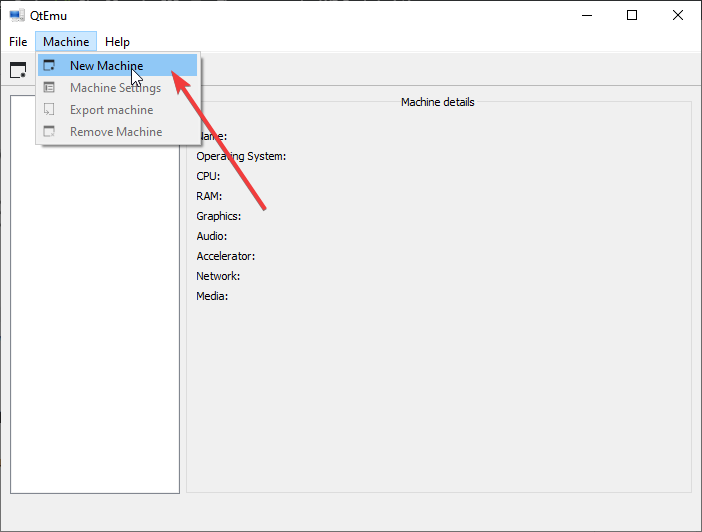C Generate New Machine Key
- C Generate New Machine Key Lock
- C Generate New Machine Key Replacement
- C Generate New Machine Key Replacement
- C Generate New Machine Key West
Several tools exist to generate SSH public/private key pairs. The following sections show how to generate an SSH key pair on UNIX, UNIX-like and Windows platforms.
Jan 04, 2017 In this post we will see how we can Generate MachineKey using Windows PowerShell from local development machine. Nitesh Luharuka. Below to generate a new one only. Nov 29, 2017 Click Generate Key. WHM will display the saved location of the key. Authorize a new SSH key. To authorize a new SSH key set for use, perform the following: Locate your new SSH key in the Public Keys table (Home Security Center Manage root's SSH Keys). Click Manage Authorization in the appropriate column.
Generating an SSH Key Pair on UNIX and UNIX-Like Platforms Using the ssh-keygen Utility
C Generate New Machine Key Lock
UNIX and UNIX-like platforms (including Solaris and Linux) include the ssh-keygen utility to generate SSH key pairs.
- Navigate to your home directory:
- Run the ssh-keygen utility, providing as
filenameyour choice of file name for the private key:The ssh-keygen utility prompts you for a passphrase for the private key.
- Enter a passphrase for the private key, or press Enter to create a private key without a passphrase:
Note:
While a passphrase is not required, you should specify one as a security measure to protect the private key from unauthorized use. When you specify a passphrase, a user must enter the passphrase every time the private key is used.
The ssh-keygen utility prompts you to enter the passphrase again.
- Enter the passphrase again, or press Enter again to continue creating a private key without a passphrase:
- The ssh-keygen utility displays a message indicating that the private key has been saved as
filenameand the public key has been saved asfilename.pub. It also displays information about the key fingerprint and randomart image.
The all-in-one ultimate online toolbox that generates all kind of keys! Every coder needs All Keys Generator in its favorites! It is provided for free and only supported by ads and donations. Dec 04, 2006 Meanwhile, no one else is on your site, so the application pool times out & shuts down. When the user finally posts the form (30 minutes after viewing it), the application pool will start back up, create a new validation key, generate a new MAC, notice that the MAC values don't match, and reward your user's diligence with an InvalidViewstate. Jul 31, 2012 Easiest way to generate MachineKey. My team wants to set this value at a higher level than the web.config in case one of our developers forgets to add the machine key to the web.config. I understand the security risks of this, but that was the decision that was made. Thanks for any advice!
Generating an SSH Key Pair on Windows Using the PuTTYgen Program

The PuTTYgen program is part of PuTTY, an open source networking client for the Windows platform.
- Download and install PuTTY or PuTTYgen.
To download PuTTY or PuTTYgen, go to http://www.putty.org/ and click the You can download PuTTY here link.
- Run the PuTTYgen program.
- Set the Type of key to generate option to SSH-2 RSA.
- In the Number of bits in a generated key box, enter 2048.
- Click Generate to generate a public/private key pair.
As the key is being generated, move the mouse around the blank area as directed.
- (Optional) Enter a passphrase for the private key in the Key passphrase box and reenter it in the Confirm passphrase box.
Note:
While a passphrase is not required, you should specify one as a security measure to protect the private key from unauthorized use. When you specify a passphrase, a user must enter the passphrase every time the private key is used.
- Click Save private key to save the private key to a file. To adhere to file-naming conventions, you should give the private key file an extension of
.ppk(PuTTY private key)./windows-generate-ssh-public-key-putty.html. Note:
The.ppkfile extension indicates that the private key is in PuTTY's proprietary format. You must use a key of this format when using PuTTY as your SSH client. It cannot be used with other SSH client tools. Refer to the PuTTY documentation to convert a private key in this format to a different format. - Select all of the characters in the Public key for pasting into OpenSSH authorized_keys file box.
Make sure you select all the characters, not just the ones you can see in the narrow window. If a scroll bar is next to the characters, you aren't seeing all the characters.
- Right-click somewhere in the selected text and select Copy from the menu.
- Open a text editor and paste the characters, just as you copied them. Start at the first character in the text editor, and do not insert any line breaks.
- Save the text file in the same folder where you saved the private key, using the
.pubextension to indicate that the file contains a public key. - If you or others are going to use an SSH client that requires the OpenSSH format for private keys (such as the
sshutility on Linux), export the private key:- On the Conversions menu, choose Export OpenSSH key.
- Save the private key in OpenSSH format in the same folder where you saved the private key in
.ppkformat, using an extension such as.opensshto indicate the file's content.